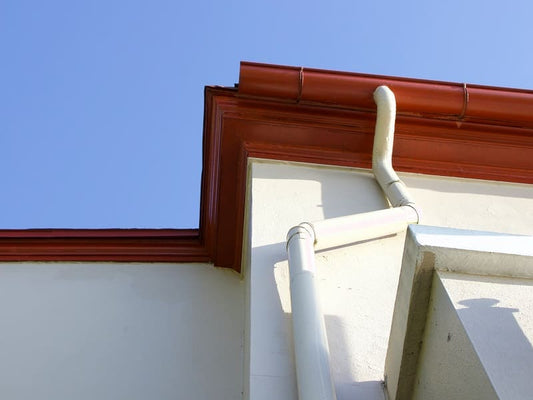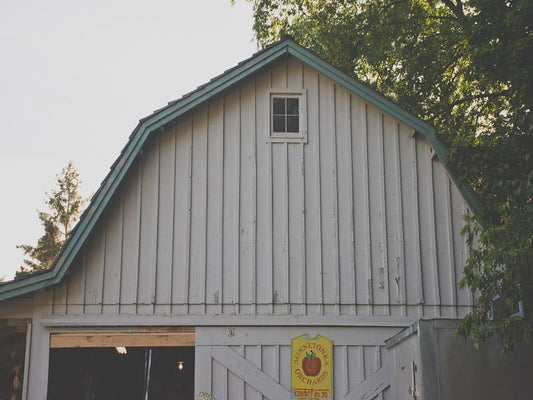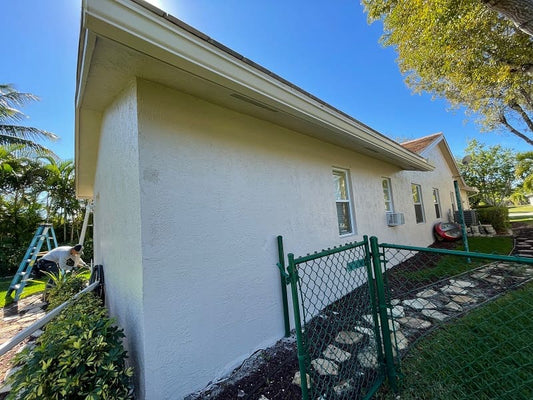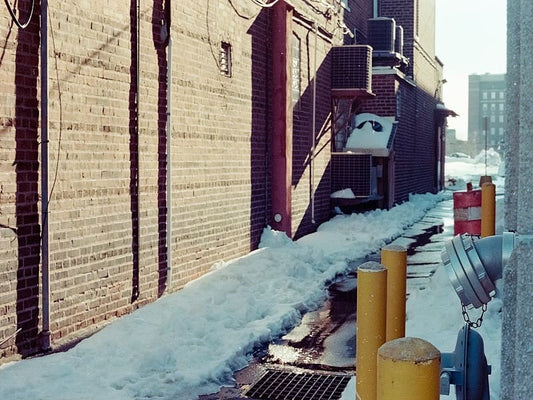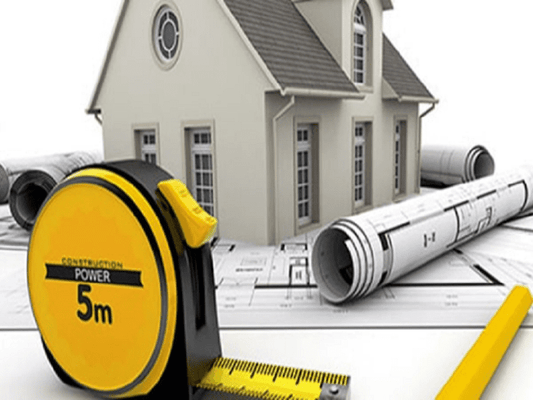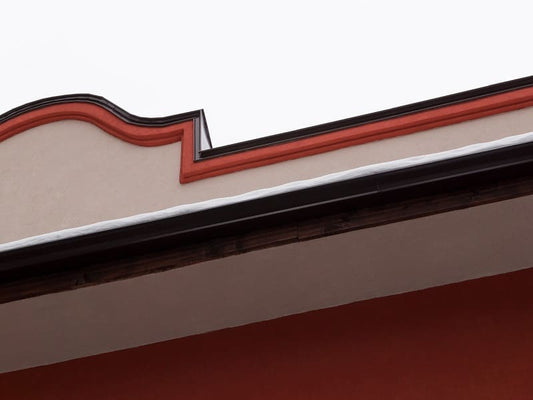
Does a House Need Gutters? | Here’s The Answer!
Does a House Need Gutters? | Here’s The Answer!
Do I need gutters in my house? It is a typical concern while setting up gutters. Gutters are the silent stars of your home; they keep it in good shape without getting much attention. Sloped roofs benefit from gutters, the thin channels set up along the roof's edges to collect rainfall and move it away from the home.
There is no way to overestimate their significance despite their simplicity. These drought protectors prevent water damage to unprepared homes. Without gutters, rainwater may seep into your home's foundation, siding, landscaping, and even living areas, requiring expensive repairs. They also protect your paint and keep your basement from flooding.
So, if you are still wondering, “Does a House Need Gutters?” we have explained everything. Let us have a look!
The Purpose of Gutters | Do Homes Need Gutters?
Gutters are essential to protecting your home from rain and the damage it can cause. Here are some reasons why they're so crucial:
1. Diverting Rainwater Away from the House:
Water will accumulate on your roof if it rains. It would run down the sides of your home and potentially cause flooding and debris if you didn't have gutters to catch it. Gutters divert the water away from your house as they gather it.
2. Preventing Erosion and Foundation Damage:
The soil around the foundation of your house may get eroded if it frequently receives precipitation. Over time, erosion may weaken the foundation, a crucial component of your home's construction. Gutters channel the water away, protecting the land from erosion.
3. Preserving the Structural Integrity of the Roof:
Over time, your roof might deteriorate if water pools there. Protecting against leaks and prolonging the roof's life, gutters direct water away from the structure.
The Different Types of Gutters For Your Home:
1. Materials for Gutters:
It is a standard option because of its low cost, portability, and rust resistance. It's available in several hues, and assembly is a breeze.
Advantages include low price, portability, and lack of rust. Dents and bending over time are two potential drawbacks.
Copper gutters are long-lasting and attractive because they patina beautifully over time. They are more costly and need expert installation, however.
Both its longevity and its visual appeal are significant pluses. The exorbitant price and the need for expert installation are two major drawbacks.
It is an inexpensive alternative that doesn't corrode or rust and is simple to set up. However, it may crack or break in very cold or hot conditions.
The benefits include low cost and simple setup. Cons include possible fading and susceptibility to cracking at high temperatures.
2. Forms of Gutters:
This design, which has the form of the letter K, is adaptable and effective in draining rainwater in various conditions. Most homes nowadays are built in this design.
These gutters, which are open on one side and have a rounded bottom, are famous for their aesthetically pleasing design, particularly in older or more upscale houses. They are well with water, although they could need extra upkeep.
Choosing the Right Gutters for Your Home:
Choosing the proper gutters for your home involves considering various factors to ensure effective rainwater management and proper maintenance. Here's a guide to help you make an informed decision:
Climate:
If you live in an area with heavy rainfall or frequent storms, gutters with a high capacity to handle large volumes of water may be necessary. Durable materials like aluminum or steel are best in areas with snow and ice.
House Design:
The design of your home, including its roof size and shape, will influence the gutter system you need. Larger roofs require gutters with higher capacities to manage the increased runoff.
Evaluate Gutter Sizes and Capacities:
Gutters are available in different sizes and capacities to accommodate varying levels of rainfall. The size of the channel and downspouts should match the rain your region experiences to prevent overflow and water damage.
Consult a Professional:
Seek guidance from a professional gutter installer or contractor who can assess your home, consider local climate conditions, and recommend the most suitable gutter type and size.
A professional can ensure proper installation, which is crucial for the gutters to manage rainwater and protect your home effectively.
Why Gutters Are Essential For Your Home? | Benefits
Installing gutters on your house has several positive effects, including ensuring the building's stability and lifespan. Having channels is a prudent move for the following reasons:
Avoiding Water Damage to Siding and Exterior Walls:
Gutters catch precipitation and channel it away from a building's siding and walls. Water stains, erosion, and rotting may result from rainfall running down the walls without gutters. Installing gutters can prevent water damage to your home's exterior and foundation.
Reducing the Risk of Basement Flooding:
Water might pool around your home's base if the rain isn't diverted from the structure. Water collection in the basement raises the danger of flooding, which may cause expensive repairs and mold growth. Gutters are crucial in avoiding this problem since they direct rainfall away from the building's base.
Enhancing the Lifespan of Exterior Paint and Finishes:
Constant precipitation may wear away at your home's exterior finishes and paint. Gutters prevent paint and finishes from deteriorating due to water damage by directing water away from walls. Ultimately, this will keep your home's exterior looking great for longer.
How To Install Gutters Correctly?
Gutter systems are as good as their installation, so make sure you do it well. Here are some of the most essential guidelines and warnings for a successful gutter installation:
- Make a plan, taking measurements of the roof and where you want the gutters and downspouts to go.
- Get your hands on gutters, downspouts, brackets, screws, and sealant.
- Get the site ready by sweeping the roof and checking for levelness. Make sure you precisely mark the locations of the brackets and downspouts.
- At regular intervals along the roofline, mount brackets to support the gutters.
- Gutter installation is as simple as hanging the gutters from the brackets. Make sure there's a gentle incline leading to the downspout.
- Install downspouts so that water flows away from the building's base.
- Ensure there are no leaks by sealing any connections or joints. Pour water through the system to ensure it drains correctly.
DIY Installation vs. Hiring Professionals:
Hiring experts eliminates the possibility of making mistakes during installation because of a lack of knowledge or skill.
DIY installation may save money, but it is only possible with experience, training, and equipment.
Environmental Impact of Gutters | Does a House Need Gutters?
Making traditional gutter materials like aluminum and steel requires a lot of energy, which may lead to resource depletion and pollution.
Water runoff problems from poorly maintained gutters may lead to soil erosion and pollution of neighboring water sources from accumulated debris and contaminants.
Sustainable Gutter Materials and Practices:
Using recycled resources, such as recovered aluminum, in producing sure gutters helps reduce the need for new raw materials and supports a circular economy.
Maintenance procedures, such as routine cleaning, may reduce debris buildup and the associated runoff problems, reducing adverse environmental effects.
Contribution to Water Conservation:
Rainwater harvesting systems are one example of how eco-friendly gutters may help save water and lessen the burden on municipal systems.
Gutters that are in good repair assist in keeping rainfall under control, diverting it away from vulnerable spots where it may cause damage.
Gutters and Home Insurance: How They Are Beneficial?
There are a few ways in which gutters may reduce the cost of homeowner's insurance:
Potential Insurance Benefits:
Preventing water damage to your property is as simple as keeping your gutters clean. If you take precautions to safeguard your home, your insurance company may reward you with better premiums or a discount.
Effective gutters that divert rainfall away from the home lessen the likelihood of floods and water-related insurance claims.
Insurance Costs for Houses:
When deciding how much to charge for insurance, firms consider the property's entire risk. Gutter protection that is well-installed and well-maintained is a sign of responsible home ownership. It may also cause insurance savings owing to a decreased chance of water damage.
Conclusion:
Does a house need gutters? In sum, gutters' essential functions clarify why every home needs them. Without gutters, water may seep into the structure, weaken the foundation, and shorten the roof's lifespan.
The hazards of ignoring gutters highlight their crucial role in ensuring a secure and long-lasting home environment. In conclusion, channels are essential to keeping a property in good condition and prolonging its lifespan.

